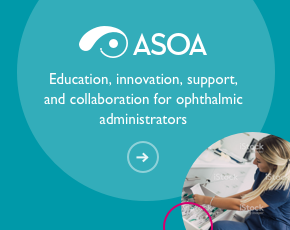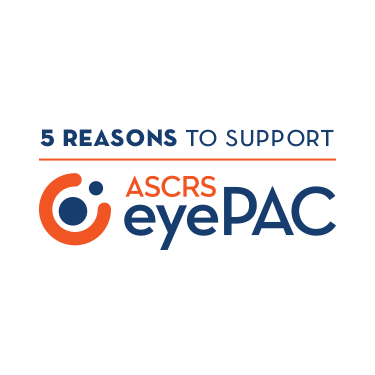SUSAN MACDONALD
"Imagine having the ability to cure someone's blindness and not have the tools to perform the surgery." - Susan MacDonald MD
Susan is a board-certified ophthalmologist, receiving her medical degree from the University of Massachusetts Medical School. She trained in two specialties: Internal Medicine at Brown University and Ophthalmology Residency at the University of Utah.
At Brown she helped develop a multi-specialty team to address medical and social barriers associated with AIDs. At the University of Utah, she fell in love with ophthalmic surgery and its ability to restore sight. The Moran Eye Center is where she found her purpose, her lifelong friends and amazing mentors. Returning to New England, she joined the Lahey Clinic Medical Center and Tufts School of Medicine clinical teaching program where she taught and treated patients for twenty-five years.
During her second year as a Tufts clinical faculty member, she won the Tufts teaching award. She went on to train and mentor over 100 residents as well as pursue a fellowship in medical education. She is an Associate Clinical Professor at Tufts School of Medicine and has been an active leader in resident education. She became the director of CORE, a national residency cataract training course. Her expertise in complex cataract surgery and management of complications lead to invitations for her to participate in regional, national and international conferences. She has authored several book chapters and ophthalmic papers and continues to add value to the training in medicine.
She is a member of the Academy of Ophthalmology and of the American Society of Cataract and Refractive Surgery (ASCRS). She has accepted the chair position of the ASCRS Foundation to support outreach in America and internationally. As a key thought leader, she is a senior advisor for two investment funds focusing on new technologies to improve health care in low- and middle-income countries.
Susan's international interests began early on as an exchange student at Kenya's Start of the Sea School in Mombasa. As a college student she was building latrines in Oaxaca, Mexico, and volunteered on an immunization project in the Dominican Republic. Once an ophthalmologist, she continued serving the international community through eye camps and mobile eye care services in El Salvador, working side by side with her mentor, Alan Crandall in Navajo Nation, Guatemala, Haiti, and Tanzania.
In 2017, Susan co-founded Eye Corps, a nonprofit in sub-Saharan Africa. Within five years Eye Corps has grown from a small idea to a well-respected model of sustainable eye care. The goal of Eye Corps is to improve the quality and quantity of eye care provided by in-country professionals. Current interventions are based on identifying and removing barriers in eye care training and improving access to equipment and mentors. Her ability to adjust and pivot has been crucial for Eye Corps' success; with lessons learned, she weaves new information and opportunities into Eye Corps' strategic plan. Susan is quick to point out that Eye Corps’ success is the work of many, and Susan's ability to be inclusive and collaborative has helped develop a network of NGO collaboration. Under Susan's leadership, Eye Corps has four sites; three in regional hospitals and one being created in Dar es Salaam.
One of Susan's leadership skills is developing relationships to strengthen the impact of individuals and institutions. Eye Corps has partnered with the Muhimbilli Tanzanian Residency Program (the most extensive residency program in Tanzania), the Tanzanian Ministry of Health, and the Tanzanian Ophthalmology Society to provide education, equipment, and mentorship to regions without eye care.
Eye Corps' model focuses on sustainability, strengthening national training resources by providing additional expert training with international training teams. The shared goals of the program are to improve surgeon’s diagnostic and surgical skills, bridging the transition to a practice at a regional hospital currently without eye care. This sustainable model has been tested and successful in three regions. Eye Corps now has a network of mentors to provide continuing education, guidance, and skills. The multi-level training of skills, leadership, and mentorship is achieved with a combination of resident, junior doctors, and senior clinicians. Students will be called upon to become trainers if they accomplish a skill.
Susan brings thoughtful curiosity to the complex issue of global ophthalmology. She leads provoking discussions on the structure and mechanics of outreaches as well as the ethical and racial bias outreach may create. She is constantly learning from her experiences and is pushing the nonprofit space to address issues such as gender inequity and the inherent bias created by the paternal, post-colonialistic outreach model.
Susan is an enthusiastic feminist, using her position to advocate for younger women’s access to education. She is a passionate advocate of women’s access to health care. Susan encourages women at all levels to obtain education and strive for excellence. As an advocate for women in ophthalmology, in 1999, she co-hosted the first Egypt Women in Ophthalmology afternoon tea and then served as guest of honor at the first India Women in Ophthalmology meeting. With over 20 years in the Women in Ophthalmology organization, she has held leadership positions, including Annual Meeting Director, Board Member, and President. Additionally, she serves as an advisor for Women Ophthalmologist Worldwide.
She has been married for over 30 years to Doug and has two wonderful children, a dog, and three chickens.


